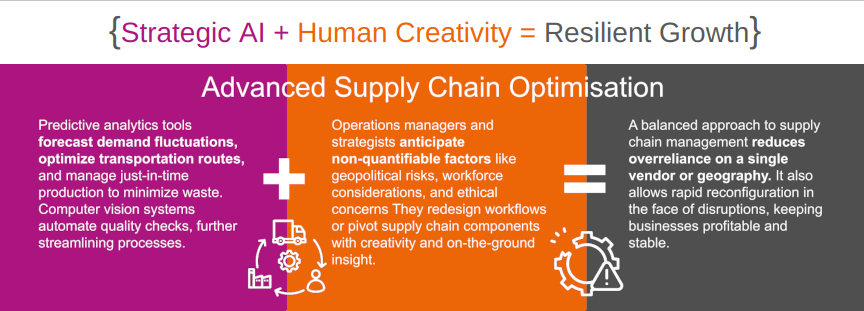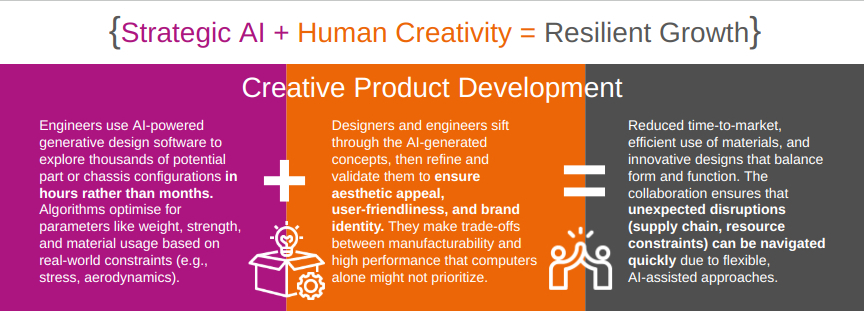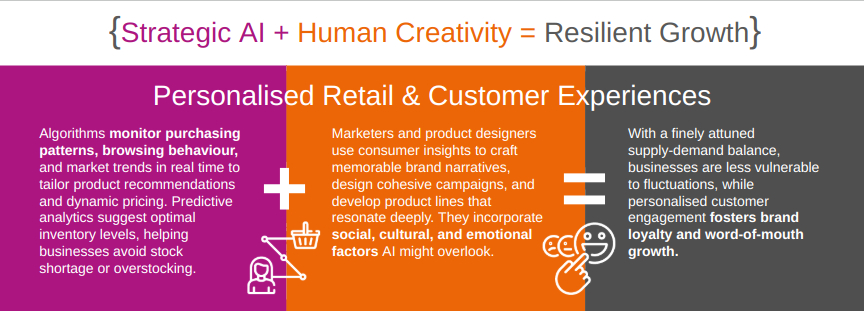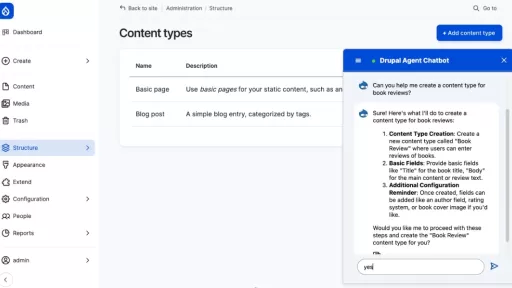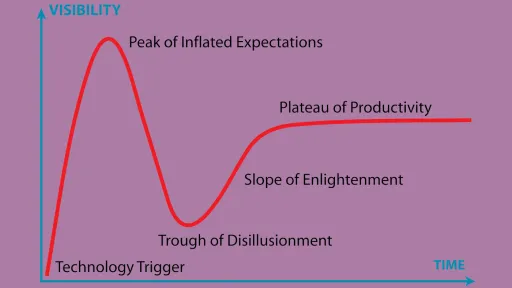Strategic AI
Aligning AI tools with business or policy objectives, governing their use responsibly, and focusing on AI where it can provide significant leverage (such as automating routine tasks or generating insights from big data). Strategic AI is thus an approach that maximizes AI’s strengths (speed, data analysis, pattern recognition) in service of human-defined missions.
Human Creativity
Drawing deeply on emotion, cultural context, and lived experience. In short, human creativity is the driving force behind art, innovation, and complex problem-solving throughout history, providing the vision and purpose behind new creations.
Resilient growth
Unlike fragile growth that might collapse under shocks, resilient growth is durable and inclusive. In practice, this means building systems that can absorb or quickly adapt to crises – whether economic downturns, technological disruptions, or global pandemics – and continue progressing.
A Perfect Union
When we talk about combining AI and human creativity, it’s not a competition but a complementary relationship. AI (especially modern AI like generative models) can act as a powerful tool or partner that augments human creative work, rather than replacing it. AI can generate ideas or draft content at high speed, serving as a creative “sparring partner” for humans. Meanwhile, humans provide guidance, critical judgment, and original inspiration to ensure the results are meaningful and aligned with our values.

